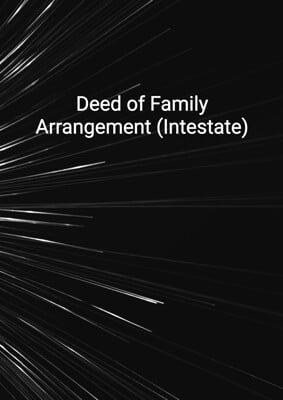
Credit Support Guarantee for Master Agreement
Neutral
In relation to a master agreement relating to financial transactions (ISDA, Repurchase Agreement; Securities Lending Agreement) , a guarantee is given by a party's credit support provider to the other party for the party's obligations. This is drafted in neutral form.
How to Tailor the Document for Your Need?
01
Create Document
Fill in the details of the parties. You can click the "Fill with Member’s Information" button to complete it with information saved to your account.
02
Fill Information
Please fill in any additional information by following the step-by-step guide on the left hand side of the preview document and click the "Next" button.
03
Get Document
When you are done, click the "Get Document" button and you can download the document in Word or PDF format.
04
Review Document
The document should be signed by the authorised signatory (or directors of a company) and witnessed to complete the formality.
Document Preview
Document Description
The document titled 'Credit Support Guarantee for Master Agreement' is a deed of guarantee that is made between the Guarantor and the Beneficiary. The Guarantor, whose registered office is situated at Party 1 Address, is guaranteeing the due performance and payment of all liabilities of the Counterparty under the Contract and any other covered agreement. The Beneficiary, whose principal place of business is at Party 2 Address, has entered into a contract with the Counterparty.
The document starts with definitions and interpretation, providing clarity on the terms used throughout the guarantee. It defines terms such as 'business day', 'contract', 'covered agreement', and 'covered transaction'. The headings in the document are for convenience only and are to be ignored in construing the clauses.
The guarantee section states that the Guarantor irrevocably and unconditionally guarantees the due and punctual performance of all present and future obligations and liabilities of the Counterparty to make any payment under or in relation to any contract between the Counterparty and the Beneficiary. The Guarantor promises to pay the Beneficiary on demand any unpaid balance of such liabilities.
The indemnity section states that the Guarantor agrees to indemnify each Beneficiary on demand against any cost, loss, or liability suffered by the Beneficiary as a result of any liability guaranteed by the Guarantor becoming unenforceable or invalid due to applicable insolvency or bankruptcy laws.
The payment section specifies that payment under the guarantee is subject to the failure by the Counterparty to discharge the relevant liability within any applicable grace period following the due date for payment. The Beneficiary must provide written notice of such failure to both the Counterparty and the Guarantor. The Beneficiary is not obliged to take any legal action against the Counterparty before exercising its rights or remedies under the guarantee.
The document also includes provisions regarding the exercise of rights, waiver of defenses, discharge only upon payment in full, waiver by the Guarantor, subrogation, treatment of withholdings, stay of acceleration, representations and warranties, continued validity, severability, assignment, and notices.
The document concludes with a jurisdiction clause, stating that the Guarantor waives any objections to the jurisdiction of any courts referred to in the clause and agrees that a judgment or order of any such court in connection with the guarantee is conclusive and binding on the Guarantor.
The document is a legally binding agreement that ensures the Guarantor's commitment to guarantee the performance and payment of the Counterparty's liabilities under the Contract and any other covered agreement. It provides clarity on the rights and obligations of the Guarantor, Beneficiary, and Counterparty, and includes provisions to protect the interests of all parties involved.
How to use this document?
1. Understand the purpose: The document is a deed of guarantee that ensures the Guarantor's commitment to guarantee the due performance and payment of all liabilities of the Counterparty under the Contract and any other covered agreement.
2. Familiarize yourself with the definitions: Pay attention to the definitions provided in the document, such as 'business day', 'contract', 'covered agreement', and 'covered transaction'. These definitions will help you understand the terms used throughout the guarantee.
3. Review the guarantee section: Understand that the Guarantor is irrevocably and unconditionally guaranteeing the performance of the Counterparty's obligations and promising to pay the Beneficiary any unpaid balance of such liabilities on demand.
4. Consider the indemnity section: Note that the Guarantor agrees to indemnify the Beneficiary against any cost, loss, or liability suffered due to the unenforceability or invalidity of any guaranteed liability under applicable insolvency or bankruptcy laws.
5. Understand the payment terms: The payment under the guarantee is subject to the Counterparty's failure to discharge the relevant liability within the applicable grace period. The Beneficiary must provide written notice of such failure to both the Counterparty and the Guarantor.
6. Be aware of the rights and remedies: Note that the Beneficiary has the right to exercise its rights and remedies under the guarantee without taking legal action against the Counterparty.
7. Consider the provisions regarding waiver, subrogation, and withholdings: Understand the implications of the provisions regarding waiver of defenses, subrogation, and treatment of withholdings on the Guarantor's obligations under the guarantee.
8. Review the representations and warranties: Ensure that the Guarantor's representations and warranties are accurate and valid, as they form the basis of the Guarantor's obligations under the guarantee.
9. Understand the jurisdiction clause: Note that the Guarantor waives objections to the jurisdiction of the courts referred to in the clause and agrees that judgments or orders of such courts are binding and enforceable.
10. Seek legal advice if necessary: If you have any doubts or questions regarding the document or its implications, it is advisable to seek legal advice to ensure a clear understanding of your rights and obligations.
Not the right document?
Don’t worry, we have thousands of documents for you to choose from:





















